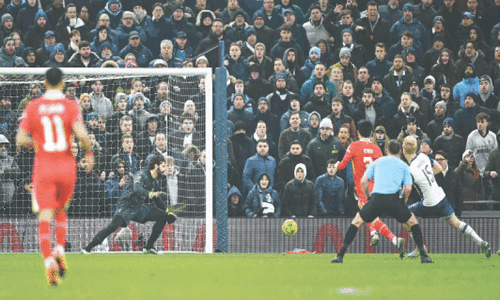
ON a recent visit to the US, I saw a bitterly divided country. In the wake of the white nationalist rally in Charlottesville, it was incredible to witness President Trump legitimise a hateful ideology. Expressing their anxieties, Muslim immigrants recalled that, during his campaign, he compared Muslim refugees to ‘venomous snakes’. Trump is essentially perpetuating his own version of extremism — that of the radical right.
His friend Roger Stone would argue: “Politics is not about uniting people. It’s about dividing people and getting your 51 per cent.” But, as Franklin D. Roosevelt correctly noted, the presidency is a position of moral leadership — a person the nation looks to in difficult times — and Trump’s demagoguery has exposed his inability to lead. So how fragile is the union?
National security expert Keith Mines cites five conditions that lead to internal security upheavals: entrenched national polarisation; weakened institutions; divisive media coverage and disinformation flows; abdication of responsibility by the political leadership; and legitimisation of violence as a way to conduct discourse or solve disputes. This portends ill for a nation riven by its own emotional cultural vulnerabilities — its own hypocrisy.
Ilhan Omar, the US’s first Somali-American Muslim legislator, emphasises the need to recognise that the US was “founded by the genocide of indigenous people and on the backs of slaves” and continues to “maintain global power [through] neocolonialism”. Only then could Americans collectively overcome their history; failing that they “are at a bigger risk of destroying [themselves] than falling at the hands of external extremists”. Her message is powerful: “If we are not actively fighting against regressive ideologies, we are contributing to their growth.”
Divisive politics threatens to tear the world asunder.
Meanwhile in Pakistan, Jinnah’s ideology — tolerance in faith, unity in diversity and discipline without violence — faces daunting challenges. Pakistan at 70 is engulfed by violent extremism, religious intolerance, petty politics, institutional decay and poor governance. Ours was by no means a perfect union, but it was based on the belief that we can do better. Our national purpose delineated by our founding father was to be a democratic polity espousing the cause of peace, progress and social justice.
But democracy was not allowed to strengthen through electoral continuity. Our first native army chief imposed martial law; abrogated the 1956 constitution; introduced One Unit and the presidential form of government; brought the capital nearer GHQ; and introduced a sham democracy. The military dictator after him presided over the country’s break-up. Yet another ‘pious’ general promoted jihad as an industry and patronised proxy wars through non-state actors. Being embroiled in the conflicts of superpowers destroyed the fabric of our society, and violence became a way of life — a heavy price to pay for the follies of our uniformed policymakers. Yet another ‘enlightened’ military ruler ensured we became a client state, still constantly badgered to ‘do more’ in the ‘war on terror’.
It is to the credit of our two most recently retired army chiefs that they recognised our internal security fault lines and launched operations against militancy. The APS Peshawar carnage galvanised the entire nation, and the resultant NAP reflected the collective resolve of the state security apparatus to root out violent extremism.
But NAP’s implementation hit some snags due to civil-military misunderstandings. Unfortunately, both former army chiefs became controversial towards the end of their military careers. One sought a three-year extension, the other a lucrative post-retirement position in the House of Saud. All eyes are now on the present army chief who has acknowledged that his institution will abide by the Constitution and uphold the rule of law. Staying out of domestic politics and submitting to civilian authority are hallmarks of a professional military under a constitutional democracy.
The current army chief’s response to Trump’s Afghanistan and South Asia policy is encouraging: we are fighting terrorism in our own interests and want only the US’s “trust, understanding and acknowledgement of our contributions”.
The jury is still out on whether he means what he says. May I remind the general that the main pillar of NAP was to remove the distinction, not only between the good and bad Taliban, but also between good and bad militants of any affiliation? While the TTP and their affiliates are on the run, the militant organisation IS and other banned outfits are regrouping. Some within the erstwhile strategic assets are planning to join mainstream politics, while others are mustering strength in the remote corners of south Punjab and Balochistan. The battle against militancy is yet to be fully fought in the Punjabi heartland where the dance of wolves should not be allowed.
The radical right is ascendant, and this theatre of the absurd may haunt our future generations.
The writer is a former IG police.
Published in Dawn, September 10th, 2017











































